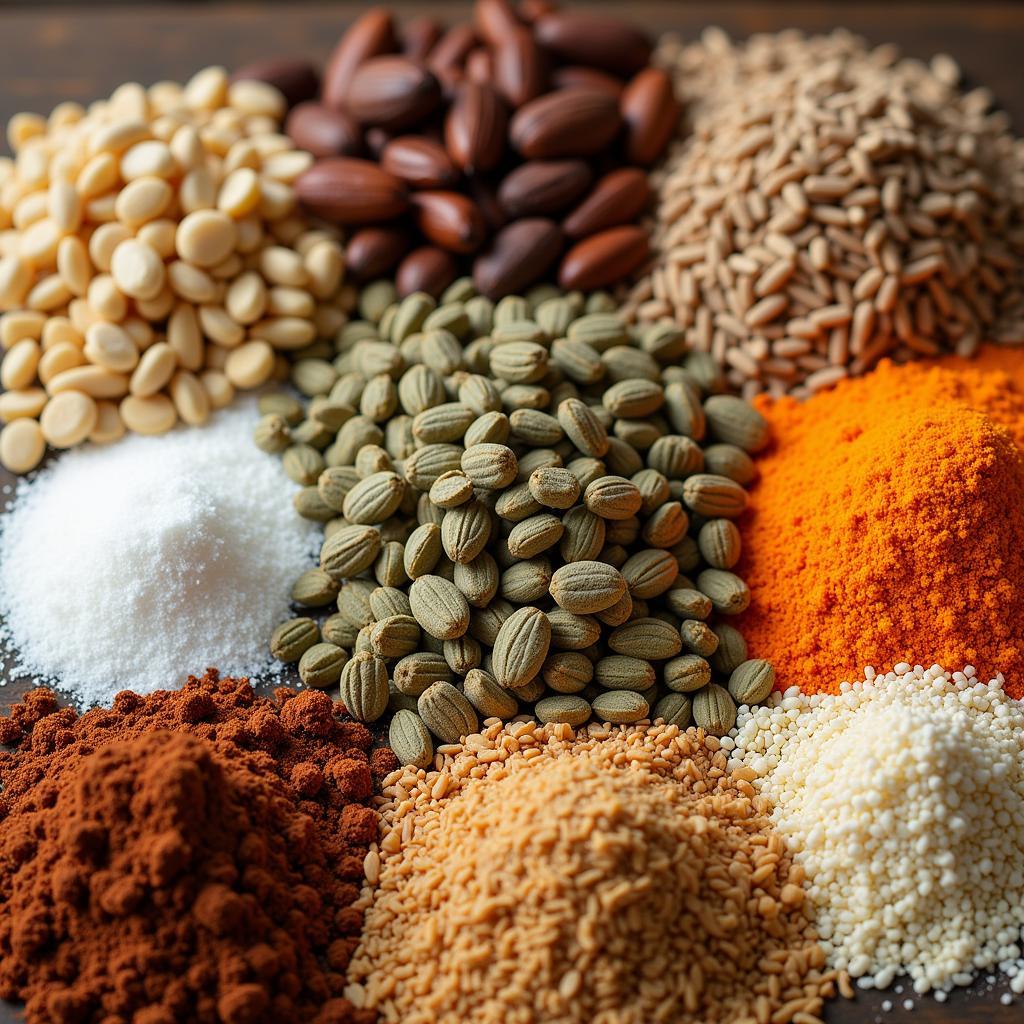Building muscle on a horse is a multifaceted process that requires a balanced approach encompassing nutrition, exercise, and overall well-being. Whether you’re aiming to enhance your horse’s athletic performance or simply improve their physique, understanding the fundamentals is key.
The Role of Nutrition in Muscle Development
Just like humans, horses need a balanced and nutrient-rich diet to support muscle growth. High-quality protein is essential, as it provides the building blocks for muscle tissue.
- Protein Sources: Opt for feeds rich in essential amino acids, such as alfalfa hay, soybean meal, and oats.
- Carbohydrates and Fats: These provide energy for workouts and muscle recovery. Consider adding corn, barley, or rice bran to their diet.
- Vitamins and Minerals: Ensure your horse receives adequate amounts of vitamins E and C, as well as selenium, which play a crucial role in muscle function and recovery.
 Essential Nutrients for Horse Muscle Growth
Essential Nutrients for Horse Muscle Growth
Exercise Regimes for Building Equine Muscle
A tailored exercise plan is crucial for stimulating muscle growth in horses.
- Strength Training: Incorporate exercises that encourage muscle engagement, such as hill work, cavaletti exercises, and pulling weights.
- Cardiovascular Conditioning: Regular cardiovascular exercise, such as trotting and cantering, improves circulation and strengthens muscles.
- Targeted Training: Focus on specific muscle groups depending on your horse’s discipline. For instance, dressage horses require strong hindquarters, while jumpers need powerful shoulders and forelimbs.
Factors Influencing Muscle Growth in Horses
While nutrition and exercise are paramount, other factors can influence muscle development:
- Genetics: Some breeds are genetically predisposed to building muscle more easily than others.
- Age: Younger horses generally build muscle faster than older horses.
- Workload: Gradually increasing your horse’s workload allows their muscles to adapt and grow stronger.
- Rest and Recovery: Adequate rest is essential for muscle repair and growth.
“Remember, building muscle takes time and consistency,” advises Dr. Emily Carter, a renowned equine veterinarian. “Don’t expect overnight results. Be patient, listen to your horse’s body, and adjust their training and diet accordingly.”
Optimizing Muscle Building Through Supplements
Supplements can be a valuable addition to your horse’s diet, providing targeted nutrients that support muscle growth and recovery.
- Branched-Chain Amino Acids (BCAAs): These essential amino acids, particularly leucine, isoleucine, and valine, play a vital role in muscle protein synthesis.
- Glucosamine and Chondroitin: These supplements support joint health, crucial for horses undergoing rigorous training regimes.
- Omega-3 Fatty Acids: Found in fish oil and flaxseed, omega-3s reduce inflammation and promote muscle recovery.
Always consult with your veterinarian before introducing any supplements to your horse’s diet.
Conclusion
Building muscle on a horse is an achievable goal with the right approach. By prioritizing a balanced diet rich in protein, implementing a structured exercise plan, and considering factors like genetics and rest, you can help your horse achieve a strong and healthy physique. Remember, consistency and patience are key to success.
For more insights on equine care and well-being, explore our articles on top 10 fastest horse in the world, stirrups for horses, and horse aqua therapy.
Need personalized guidance on how to put muscle on your horse? Contact us at Phone Number: 0772127271, Email: [email protected] Or visit us at QGM2+WX2, Vị Trung, Vị Thuỷ, Hậu Giang, Việt Nam. We have a 24/7 customer support team ready to assist you.